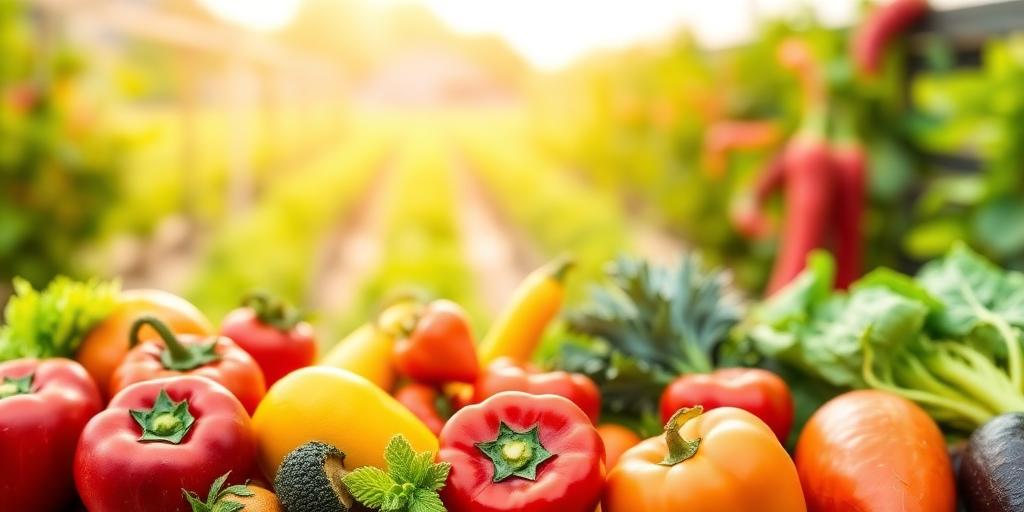Organic Foods: Are They Worth the Extra Cost?
In recent years, organic foods have become increasingly popular, lining the shelves of grocery stores and farmers' markets alike. But with their higher price tags, many consumers wonder: Are organic foods truly worth the extra cost? This article delves into the world of organic foods, examining their benefits, drawbacks, and whether they justify the additional expense.
What Does "Organic" Mean?
Before evaluating the worth of organic foods, it's essential to understand what the term "organic" actually signifies. According to the USDA, organic foods are produced using farming practices that emphasize:
- Soil health: Enhancing soil fertility through methods like composting and cover crops.
- Biodiversity: Promoting diverse ecosystems on and around farms.
- Natural inputs: Avoiding synthetic fertilizers, pesticides, and herbicides.
- Animal welfare: Providing livestock with access to the outdoors and prohibiting the use of antibiotics and hormones.
Organic certification ensures that farms meet these standards, offering consumers a level of assurance about the food they purchase.
Potential Benefits of Organic Foods
Several potential benefits are associated with organic foods:
Reduced Pesticide Exposure: Organic farming prohibits the use of synthetic pesticides, potentially lowering consumers' exposure to these chemicals. While conventional foods may also have pesticide residues within safe limits, some individuals prefer to minimize their intake.
Environmental Sustainability: Organic farming practices promote soil health, conserve water, and reduce pollution, contributing to a more sustainable agricultural system.
Potential Nutritional Differences: Some studies suggest that organic foods may have higher levels of certain nutrients, such as antioxidants. However, the evidence is not conclusive, and nutritional content can vary based on factors like soil quality and farming practices.
Animal Welfare: Organic livestock farming emphasizes humane treatment, providing animals with access to the outdoors and prohibiting the routine use of antibiotics and hormones.
Drawbacks of Organic Foods
Despite the potential benefits, organic foods also have some drawbacks:
Higher Cost: Organic foods are typically more expensive than their conventional counterparts. This is due to factors like lower yields, stricter farming practices, and certification costs.
Appearance and Shelf Life: Organic produce may sometimes have a less uniform appearance or shorter shelf life than conventional produce due to the absence of synthetic preservatives and pesticides.
Not Always a Guarantee of Health: While organic foods avoid synthetic pesticides and fertilizers, they are not necessarily healthier in all aspects. Factors like sugar, salt, and fat content still play a crucial role in overall dietary health.
Making the Decision: Is It Worth It?
Ultimately, the decision of whether organic foods are worth the extra cost is a personal one. Consider the following factors when making your choice:
- Budget: Can you comfortably afford to incorporate organic foods into your budget without sacrificing other essential expenses?
- Priorities: How important are the potential benefits of organic foods to you, such as reduced pesticide exposure or environmental sustainability?
- Specific Foods: Some foods may be more beneficial to buy organic than others. The Environmental Working Group's "Dirty Dozen" list highlights produce with the highest pesticide residues, suggesting these may be good candidates for organic purchases.
- Local and Seasonal Options: Buying local and seasonal produce, whether organic or conventional, can support local farmers and reduce transportation costs.
Long-Tail Keyword Variations
Here are some long-tail keyword variations to consider:
- "Is buying organic food worth the cost?"
- "Benefits of organic food vs conventional food"
- "Organic food prices vs nutritional value"
- "Are organic foods healthier than non-organic?"
Conclusion
Organic foods offer potential benefits such as reduced pesticide exposure, environmental sustainability, and enhanced animal welfare. However, they also come with drawbacks like higher costs and potential limitations in appearance and shelf life. By carefully considering your budget, priorities, and the specific foods you purchase, you can make an informed decision about whether organic foods are worth the extra cost for you.









